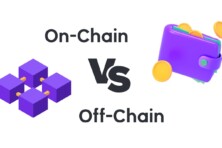
Are you a business owner caught in the maze of traditional loan applications, drowning in paperwork, and grappling with the uncertainty of approval?
Does the painstakingly slow process of securing funds hinder your growth and innovation?
Imagine a future where securing business loans is not just streamlined but lightning-fast, where transparency and trust reign supreme in the lending process.
Envision unlocking the potential of your business with ease, fueled by the financial resources you need when you need them.
In this article, we will explore the intriguing synergy between blockchain technology and business loans—a match made in heaven that has the power to revolutionise how entrepreneurs access capital.
We’ll guide you through the steps, debunk common misconceptions, and illustrate how this dynamic duo can work in your favour, even if you’re new to blockchain or sceptical about its impact on traditional financing.
Keep reading if you want to learn more about how blockchain technology and business loans are joining forces to reshape the financing future and empower your business endeavours like never before.
Understanding Blockchain Technology
Blockchain technology can transform how businesses secure and manage loans.
“Blockchain’s core principles of decentralisation, transparency, security, and immutability make it an ideal candidate for reshaping the lending industry,” says Shane Perry, a business loan provider at Max Funding.
Blockchain technology has become versatile, with applications beyond digital currencies.
It operates on a decentralised network, as highlighted by a World Economic Forum study projecting a $1.1 trillion increase in trade finance potential through decentralised systems like blockchain, emphasising transparency and security.
Blockchain ensures transparency by making transactions visible to all participants and employs advanced cryptography for robust security.
Once data is on the blockchain, it’s immutable, creating a tamper-proof ledger.
These features can potentially transform industries, including business loans, by addressing long-standing challenges in lending practices.
The Current Landscape Of Business Loans
Traditional lending institutions like banks and credit unions have been the go-to source for businesses seeking financial support.
However, obtaining a business loan from these conventional sources can often be characterised by its lengthiness and bureaucracy, which can deter many small businesses.
Entrepreneurs are looking for streamlined processes, quicker access to capital, and lending options that cater to a broader spectrum of businesses.
This need for innovation sets the stage for exploring how blockchain technology can address these challenges and reshape the landscape of business loans.
Blockchain’s Impact on Business Loans
Blockchain technology is reshaping the world of business loans with several vital impacts:
1. Transparency And Trust
Blockchain’s integration of smart contracts streamlines loan processes, reducing disputes and fostering trust among borrowers and lenders.
2. Security
Blockchain’s robust cryptographic techniques enhance the security of sensitive borrower data, significantly reducing the risk of data breaches.
3. Efficiency
Blockchain eliminates intermediaries, accelerating loan approvals and reducing administrative tasks.
According to McKinsey, blockchain can reduce operational costs in financial services by 30%, making lending processes more efficient and cost-effective.
4. Accessibility
Blockchain’s global reach simplifies cross-border lending and expands financial services to underbanked populations.
The World Bank reports that 1.7 billion adults worldwide lack access to traditional financial services, underscoring the potential for blockchain to foster financial inclusion on a global scale.
Challenges and Concerns
While blockchain holds immense promise for revolutionising business loans, it also presents notable challenges and concerns:
1. Regulatory Hurdles
The regulatory environment for blockchain-based lending is still evolving, leading to uncertainty and potential compliance issues.
2. Scalability Issues
As blockchain adoption grows, scalability remains a challenge. Ensuring that the technology can handle a high volume of transactions is crucial for widespread adoption.
3. Smart Contract Vulnerabilities
Despite their benefits, smart contracts are not immune to bugs or vulnerabilities, which can lead to significant financial risks if not properly addressed.
4. Adoption Barriers
Convincing traditional financial institutions to embrace blockchain technology in lending can take much work, hindering its widespread adoption.
Blockchain Lends a Hand: Revolutionising Loans, One Block at a Time
The synergy between blockchain technology and business loans offers a promising avenue for transforming the cumbersome lending landscape into a streamlined, efficient, and inclusive system.
Blockchain’s core principles of transparency, trust, security, and efficiency address longstanding challenges in traditional lending, creating opportunities for entrepreneurs to access capital faster and globally.
However, it’s essential to acknowledge this transformative technology’s regulatory hurdles, scalability concerns, smart contract vulnerabilities, and adoption barriers.
As blockchain continues to evolve and mature, it holds the potential to reshape the future of financing and empower businesses like never before.









